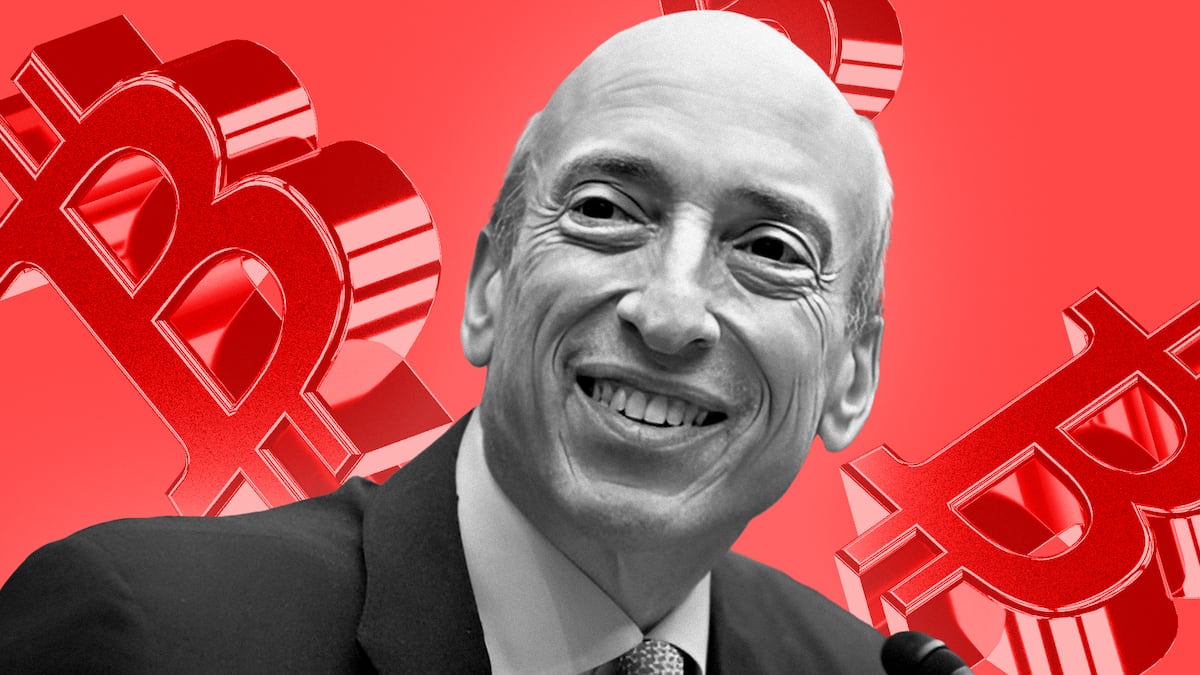- Media reports say the SEC is allowing certain large banks to skirt guidelines on holding crypto assets.
- That threatens crypto-native custody providers.
- But crypto can compete on talent and tech know-how, Custodia Bank's founder and CEO says.
A version of this story appeared in our The Guidance newsletter on July 15. Sign up here.
Competition is about to heat up in the crypto custody business as the US markets regulator opens the door to large investment banks.
But Custodia Bank founder and CEO Caitlin Long says crypto-native firms have an edge — they’re much better at blockchain.
I spoke to Long about reports that the Securities and Exchange Commission is allowing unnamed banking giants to sidestep a controversial piece of SEC staff guidance, known as SAB 121.
SEC chair Gary Gensler is “flipping the bird to the crypto industry,” Long told me.
The reports came out just as lawmakers in the House of Representatives failed to override President Joe Biden’s veto of a resolution to overturn SAB 121.
Gensler is “saying, ‘I’m going to let your big bank enemies through first — this is how I’m getting you back’,’’ Long said.
“That’s how everyone in the crypto industry is receiving it.”
What is SAB 121?:
- SAB 121 effectively makes holding crypto on behalf of others expensive for banks.
- That’s given crypto natives like Coinbase the opportunity to corner the market on large-scale crypto custody.
- Congress passed a resolution to overturn SAB 121, but Biden vetoed it. The crypto industry saw that as a sign that the administration is not, in fact, warming up to it.
I’ve been somewhat mystified by the crypto industry’s support for overturning SAB 121.
If the SEC opens the door for well-resourced and experienced firms like BNY, State Street, and Nasdaq — all of which have built crypto custody offerings — surely, that’s a threat to crypto natives.
Long, founder of Wyoming-chartered Custodia Bank and a Morgan Stanley alumna, said crypto custodians can more than hold their own even with the threat of large bank rivals.
Creaking tech
That’s because banks are bad at blockchain.
These giant institutions are built on creaking infrastructure accumulated over decades, with databases written in 60-year-old programming languages.
They have looked to solutions like cloud computing and blockchain to fix this inefficient architecture, but face a number of issues in implementing new technology.
Among these — many good engineers don’t want to work for banks.
They prefer tech companies, which pay better, offer exciting work, and are less bureaucratic.
Large banks that built crypto custody services “didn’t hire Bitcoin core developers, they tried to retrain existing engineers,” Long told me.
“They also tried to cobble together infrastructure players rather than building their own custody,” she said.
On the other hand, crypto natives like Coinbase, Kraken, and Custodia built their own systems, Long said.
That’s where these businesses will compete — on talent and native knowledge, she said.
“There is this huge technology gap. You can’t just paper over that,” Long said.
Look out for my full interview with Long on DL News. Reach out to me at joanna@dlnews.com.
